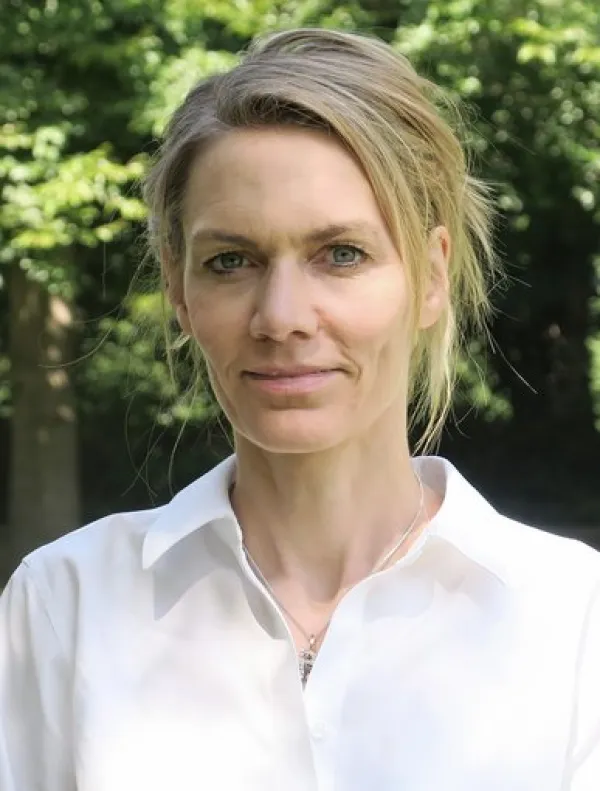Germany

Henrike Moll
She is tenured Professor of Psychology and Philosophy with over 20 years of experience researching early childhood cognition and "the anthropological difference" (human-unique thought and conduct and how we should conceptualize it). she has published many articles in journals such as Behavioral and Brain Sciences, Developmental Science, and the Philosophical Transactions of the Royal Society. Both governmental (e.g., Office of Naval Research) and private (e.g., Volkswagen Foundation, Spencer Foundation, etc.) agencies have generously funded my research. She is alumna of the Studienstiftung des Deutschen Volkes and a member of the German Academy of Sciences (active member of "Junge Akademie" 2011-2016).
She loves teaching and mentoring dedicated students. One of her biggest joys is inspiring students to pursue careers in the humanities or sciences. She enjoys speaking to broad and diverse audiences outside of universities and has lectured at schools, workshops for economists, and at institutes offering continuing education to professionals from various fields. For the current academic year (25/26), she is fellow at the Hanse-Wissenschaftskolleg (HWK), an Institute for Advanced Study in the North of Germany.
In addition to research and teaching, she practices as a psychotherapist (AMFT) in California. After a one-year internship with Los Angeles' South Central Training Consortium, where she provided individual and group therapy to survivors of domestic abuse and intimate partner violence, she currently works for Fertility Psychotherapy Group and Jade Tree Holistic Marriage and Family Therapy (under the supervision of Marielle Skouras, LMFT). She is deeply interested in psychoanalysis and have been a member of Dr. Peter Maduro's supervision group in Los Angeles and Dr. Louise Braddock's study and workshop group at Oxford University.
Culture can take hold and evolve only in a certain kind of species: one whose members are cognitively equipped to share and adopt each other’s knowledge and ideas. Research in developmental psychology, primatology, and evolutionary anthropology suggests that humans are the only species of this kind. From very early in development, children show an awareness of the limits of their knowledge, turning eagerly to others to receive knowledge and placing trust especially in competent others (adults). In this project, I will trace the origins of humans’ tendency to seek knowledge from other people.
To this end, findings from three areas of research will be integrated. The first is developmental psychology: I will conduct both quantitative (experimental) and qualitative (observational) studies on children’s social orientation in learning contexts. The second source of insight is research in primatology and comparative psychology, which suggests that human children’s social orientation in learning is unparalleled in the animal world. The third area of inquiry to inform this project is social epistemology—a branch of philosophy that examines the social ways in which humans acquire their knowledge and explores why another’s word can be as or more valuable than the use of one’s own senses. In sum, the project will shed light on the human condition by examining the evolutionary and developmental origins of humans’ unique form of social learning.
I study how infants and young children come to understand the world and the role that others play in their cognitive growth. My work is particularly concerned with the development of shared intentionality and the awareness that our access to the world is perspectival. In our most recent studies, we investigate preschoolers’ ideas about teaching (e.g., “What makes a good teacher and why?”) and their abilities to seek help from others to accelerate their learning. These studies have been funded by the German National Merit Foundation, the Volkswagen Foundation, the Office of Naval Research, and the Caplan Foundation for Early Childhood.
I favor a humanistic approach over the “crude empiricism” that dominates today’s psychology. In this vein, I bring in ideas from philosophy of mind, philosophy of education, and philosophical anthropology. With colleagues from philosophy (e.g., Andrea Kern, University of Leipzig), I have argued that our species’ extraordinarily relational and interdependent nature shapes our ontogeny and thinking from the beginning of life. This line of work has been funded by the Saxonian Academy of the Sciences, the Templeton Foundation (John Templeton Fellowship at the Notre Dame Institute for Advanced Study), and, most recently, the Spencer Foundation (Midcareer Grant).
